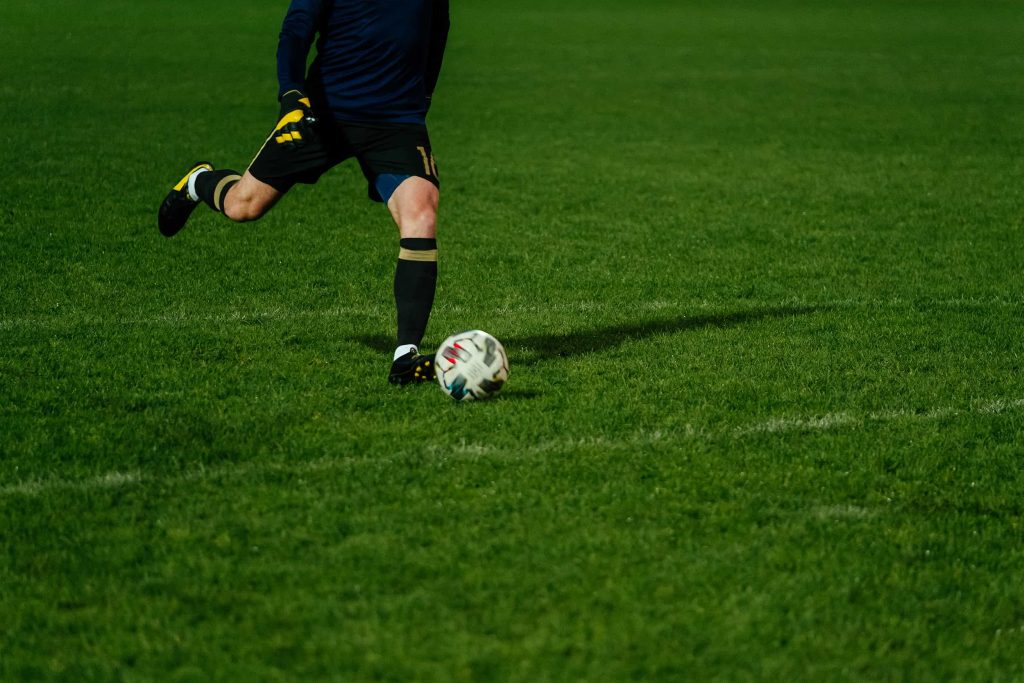Manuel Akanji joined Borussia Dortmund approximately one year ago from Swiss giants F.C. Basel. The Swiss starlet, whom Jurgen Klopp’s Liverpool were also chasing, immediately established himself in Dortmund’s starting line-up following his €18 million move to the Signal Iduna Park. Peter Stoeger’s side were bereft of defensive options as they only had Sokratis and Omer Toprak leading the defence. Dortmund’s management must have realised that the club had no long-term defensive prospects and moved quickly to land Akanji.
When Lucien Favre came during the summer Abdou Diallo was purchased from Mainz around the same time. Since the beginning of the season, the two have formed a promising partnership after a transition of players coming in and leaving the club. Sokratis left for Arsenal, while Toprak was demoted to the bench. Jean-Axel Zagadou (also signed in 2017/18) became an important replacement ahead of Toprak too and the future looks bright for Dortmund in central defensive areas. Key to their progress though has been the prowess and growth of Manuel Akanji who has led the defence brilliantly. He’s been fearless in taking on his responsibilities and provided that he can work on his defensive weaknesses, he looks set to become one of the best centre-backs in the world within the next two seasons.
Background:
Manuel Obafemi Akanji was born to a Swiss father and Nigerian mother. He grew up in an athletic and football-mad family. His father was an amateur footballer, while his mother is a former tennis player. He has two sisters, one an athlete and the other also a footballer like her brother.
He began playing football for his local club F.C. Wiesendangen before moving to FC Winthertur and playing in their youth set-up. After making his senior debut in 2014/15 he went on to appear 37 times that season. Seeing the potential in him, F.C. Basel swooped in and he joined the club ahead of the 2015/16 season. After making 42 appearances for the Swiss giants, he joined Dortmund in the winter transfer window last year and has been a mainstay at the heart of their defence ever since.
Playing Style and Strengths:
Manuel Akanji first and foremost is a very large and physically powerful defender. Standing at 6 ft. 1 in. and weighing 85kgs, his prowess gives him a huge advantage over his attacking opponents. His sprint speed is really high and it’s very rare that he loses a foot race(except on several occasions, which I’ll discuss later). He not only has the ability to out-run his opponents but also out-muscle and out-jump them too.
Defensively, he has different responsibilities depending on the phase of the game. During defensive organisation, his job is to mark free players that are positioned within his assigned zone. During possession, he’s tasked with creating a high-line along with his partner at centre-back. This is to ensure that the team doesn’t concede space in between their defensive and midfield lines and maintains a compact team shape when pressing and squeezing the opposition upon losing possession. In defensive transition, his job is to again mark players in his assigned zone.
What Akanji is so good at doing (in defensive transition and organisation) is preventing his opponent from turning upon receiving the ball. He’s very adept at forcing his direct opponent to receive with their back to goal. His large frame and aggressive pressing ensure that his opponents offload the ball due to the lack of space and the possibility of being tackled or pushed off the ball easily. In doing so, you might notice the similarities of his body shape and playing style between him and Vincent Kompany. In fact, thee two are actually very comparable when it comes to their technical defending. They both are very good at shutting down their opponents and controlling the direction of his next move. They’re also both great at anticipating the direction and angle of their opponents’ runs and use their bustling frames to block those runs and or squeeze the space between them and the ball.
In possession, Akanji’s passing traits are highly valued especially because of Dortmund possession-oriented playing style. They rely heavily on their centre-backs to distribute the ball into wide areas or into Axel Witsel or Thomas Delaney who dictate play from deep. At the moment Akanji is very adept at controlling the tempo of Dortmund’s circulation but he can always get better considering how much difficulty the team have faced in disorganizing compact and passive defences. However, that’s probably down to the team’s low-risk style and the role of their double-pivot. He’s good at recognising when to slow down the game or take two-quick touches or even one if necessary. His ability to change tempo under varying amounts of pressure, however, will be a huge asset going forward and it’s something I hope he can develop but again it’s unlikely because he needs to develop within a variety of different playing systems.
He also has the ability to play accurate long-passes. He can switch play with long diagonals, which allows the team to take advantage of their opponents’ imbalance. Mostly a switch will expose a 2v2, or 2v1 situation which the opponent has to deal with and thus it allows Dortmund the upper-hand in an attacking situation or allows them to establish possession higher up the field and continue circulating the ball in the search for space.
Weaknesses:
I mentioned his ability to dictate a team’s tempo but that is mostly out of his control right now as the team has a set identity in possession, utilising a slow-paced and patient build-up process.
One glaring weakness Akanji does have though is part physical, part tactical/technical. His big, burly frame decreases his levels of agility and acceleration. He’s weak at defending on the back foot and in 1v1 duels when he is not in control of the action-reaction scenario, he often struggles to deal with tricky, skilful opponents. This situation doesn’t happen to often however he hasn’t mastered the ability to anticipate situations early enough without hesitating.
With that being said, he is still very good at doing so. Just not at the level that he is capable of. He often has to cover his nearest fullback or his opposite centre-back and as such he needs to be quicker at anticipating what sort of situation will play out in front of him in the forthcoming two or three passes. Against Spurs, for example, he’ll come up against Heung Min-Son, Dele Alli or Christian Eriksen in these areas and he needs to be prepared to anticipate movement and the orientation of the opponents. This way he’ll be able to regain control of situations in which he doesn’t have the upper hand and block or tackle opponents and regain possession.
Statistical Performance:
Tackles per game – 0.8
Interceptions per game – 1.3
Blocks per game – 0.7
Clearances per game – 3.7
*according to whoscored.com
Unfortunately, I couldn’t find any more information on his statistical performance. The numbers above provide little context in terms of quantifying his defensive performances. He also cannot be compared to other defenders in the league as teams at the top of the table in the Bundesliga have varying styles of defending. For example, Will Orban from RB Leipzig makes an average of over 2 tackles per game. However, Leipzig constantly play in different phases of the game because of the open nature of their counter-pressing style. As a result, they constantly have defensive duels whereas Dortmund maintain possession for large parts of the game and seldom press high. Naturally, Akanji faces fewer duels than his RB Leipzig counterpart.
Conclusion:
Manuel Akanji is a very strong defender physically and mentally(lots of confidence and aggression whilst defending) but he is very skilled from a technical/tactical point of view. What he does need to improve on is his ability to dictate the pace of the game from deep and improve on anticipating 1v1 duels whilst covering his teammates. It’s very easy for tricky and skilful opponents to take him on when he doesn’t have control of the situation, which again is very rare but against top-level opponents, a chance or two is all that’s needed to exploit such a defensive weakness. Aside from that, Akanji has established himself well due to his natural ability to lead which has allowed him to become a reliable, consistent and progressive part of their team. His growth under Favre is all but guaranteed provided he recovers well from his recent groin injury. They’ll need him.



